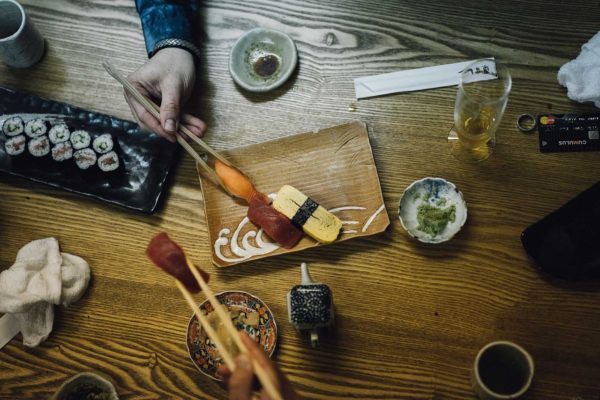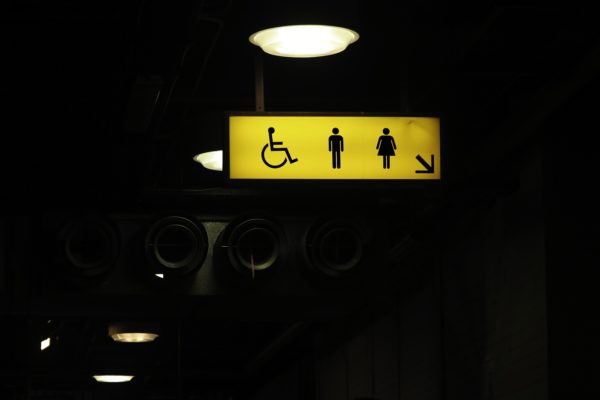Japan has a historically big smoking culture. Back in the 1950s to the 1980s, almost half of the Japanese population smoked or consumed tobacco products, with the government even backing and supporting them.
However, over the last several years, there have been efforts to ban and restrict smoking around the country. As a result, the smoking rate has dropped to 19 percent, and continues to decline faster than any Western nation.
For smokers looking to go to Japan in the future, it is important to learn what the country’s smoking laws and regulations are before heading out, so as not to get yourself in trouble once you get there.

Buying cigarettes in Japan
You do not have to bring your own cigarettes on your vacation to Japan. All over the country, you can find convenience stores, department stores, tobacco shops, and grocery stores that sell a wide selection of domestic and foreign brands.
Some of the most popular local brands are Mevius, which was formerly known as Mild Seven, and Seven Stars, which come in different flavours that include special varieties like blueberry mint and, of course, the standard menthol. They are typically priced at 400 yen to 500 yen for one pack of 20.
International brands, such as Davidoff, Black Devil, Kool, and Marlboro, are also quite common, and they are available for sale starting at the price of around 500 yen.
When buying, you may be asked to present an ID, as the law only allows sale of cigarettes to those who are over 20 years old. At the cashier counter, you can show your passport, or maybe your driver’s license or residence card. You will then be asked to confirm that you are of age to make the purchase by pushing a button on the register screen.
Cigarette vending machines
You can also buy cigarettes from the several hundred thousand cigarette vending machines found around Japan. However, you will need to accomplish an extra step to make that possible — by signing up for a “taspo” card.
To stop underage smoking, Japan’s tobacco industry put in place the “taspo” initiative, which is a program that requires individuals to undergo a thorough age verification process to ensure that only those who are 20 years old or older are able to buy cigarettes from vending machines.
Once your age has been confirmed, you will receive an identification card that you just have to tap onto the vending machine readers every time you buy cigarettes.
Find out how you can apply for a “taspo” card, and learn more about it by visiting the “taspo” website.
Smoking areas
Many train stations, convenience stores, malls, department stores, hospitals, and parks have designated smoking areas usually just right outside. They typically have large signs with a cigarette drawing or picture on it. If you need a smoke break, you have to find one and do your thing there, and not just smoke anywhere or while walking, without care.
These designated smoking areas are equipped with ashtrays, and the enclosed ones even have air conditioning and air filters.
Smoking on trains and buses
Japan’s public transportation network generally does not allow smoking. At train stations, bus stations, and inside train cars and buses, posters and signs with notices and warnings regarding the smoking rules and regulations of that particular city or town are all over the walls and posts, that it is almost impossible to miss them.
On the Shinkansen or bullet train, smoking is not allowed on the majority of the lines. At the moment, only the Tokaido/Sanyo Shinkansen has smoking cars on its trains. The smoking cabins are designed with sufficient ventilation to not let smoke escape and get to the rest of the train.
Smoking in restaurants, bars, and cafes
If you want to smoke while feasting on some great-tasting Japanese cuisine, enjoying top quality local brews, or having a chill and relaxing day with a cup of coffee or tea, it fairly easy to locate an establishment that offers designated indoor smoking zones. You can find many restaurants, bars, and cafes in Japan that have indoor smoking areas. Even some fast food chains have enclosed smoking rooms for their smoking patrons.
There are many dining recommendation websites that readily provide information on whether a particular place is smoker-friendly or not. Do some advanced online research as you are planning your itinerary, especially if you have a list of specific dining places that you want to check out on your trip.
Smoking in hotels and other accommodations
Many business hotels, ryokan, hostels, and guesthouses in Japan have smoking rooms that you can book if you are a smoker, and they usually cost the same as non-smoking rooms.
To find one for your next visit to Japan, use online hotel reservation websites and make sure to check the “smoking room” box in the filter feature to get a list of results that have smoking rooms.
Penalties
Different Japanese cities have different sets of smoking rules and regulations and corresponding punishments for people who break them.
In Tokyo, for example, if you are caught smoking in non-smoking areas, you will be slapped with a fine that can range from 2,000 yen to 5,000 yen.
In Kyoto, smoking on sidewalks and streets are prohibited, and anyone who is caught will get fined 1,000 yen.
In Osaka, the government has put in place smoking zones and non-smoking zones. If you are caught smoking on footpaths and other areas in the non-smoking zones, you will be punished by paying a fine of 1,000 yen.
In Sapporo, the law states that cigarette packs and butts should be disposed of properly to not endanger the pedestrians and the environment. Smoking is only allowed in designated areas in parks, plazas, streets, and buildings. If you are caught breaking the law, you will be fined 1,000 yen.
In Nagoya, those caught smoking in non-smoking areas will be fined 2,000 yen.



